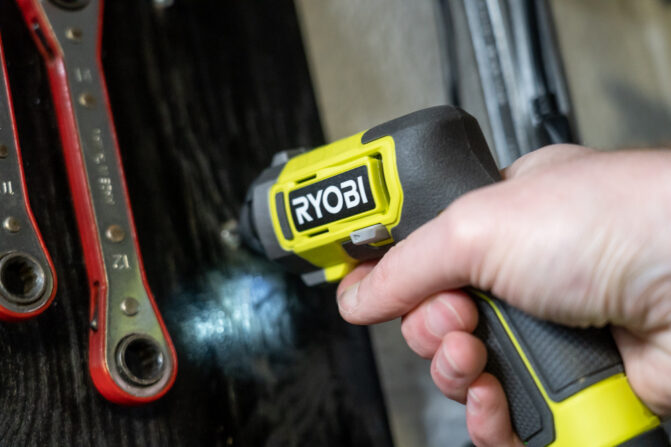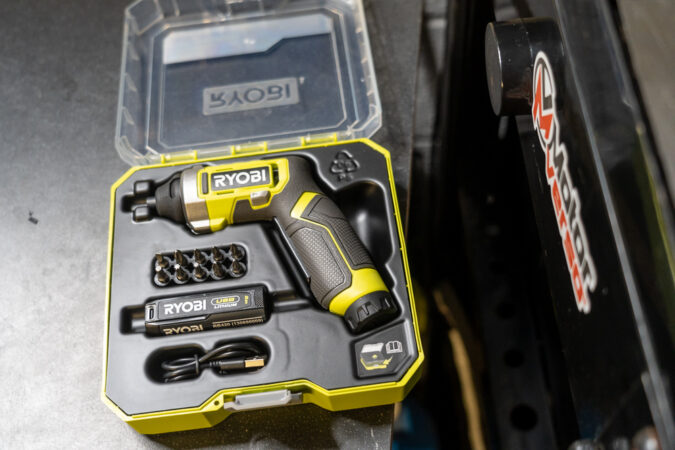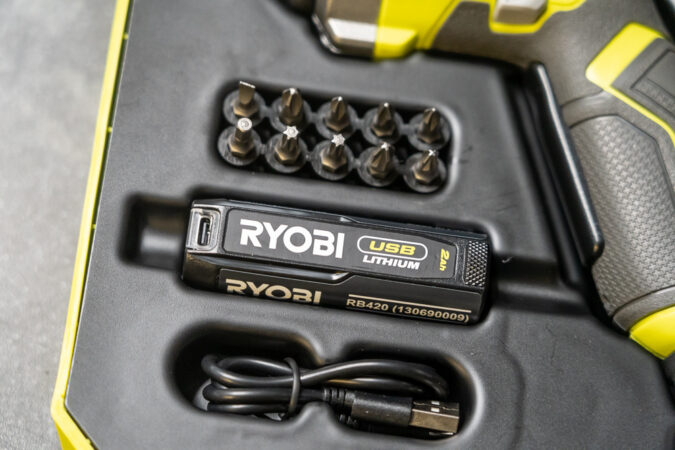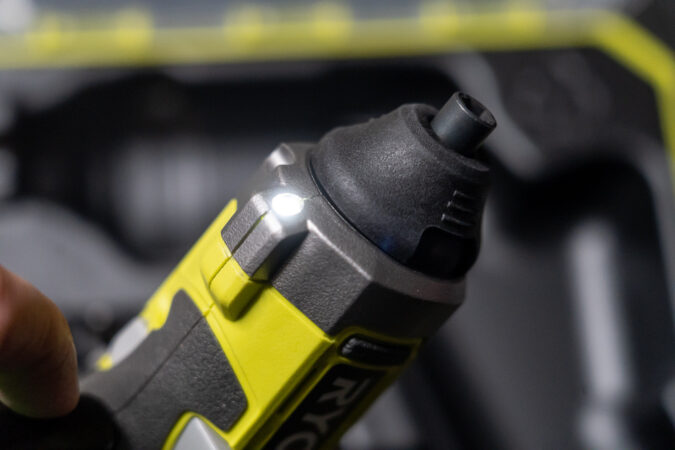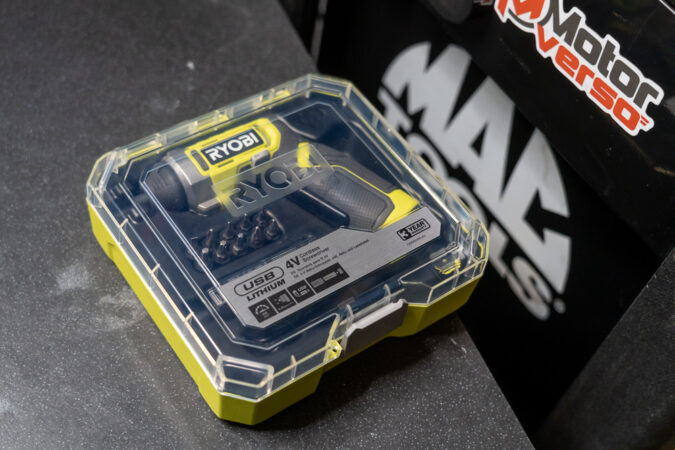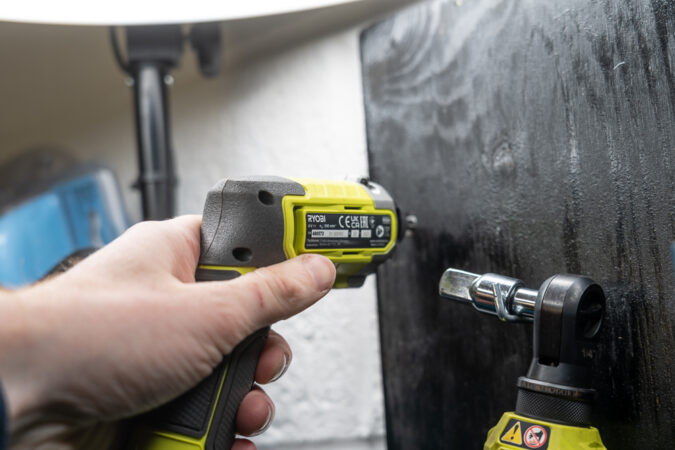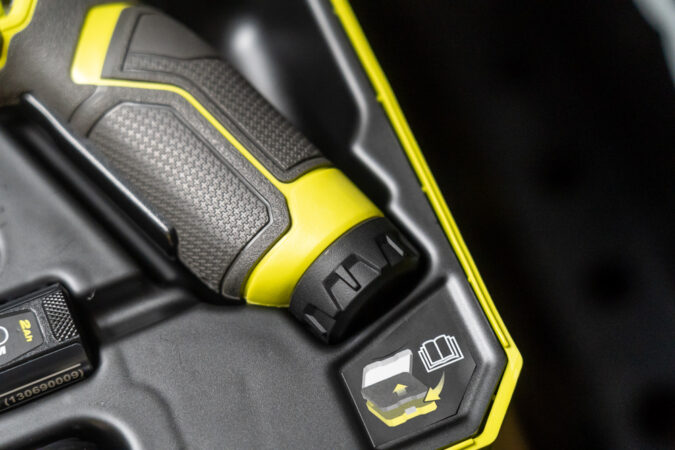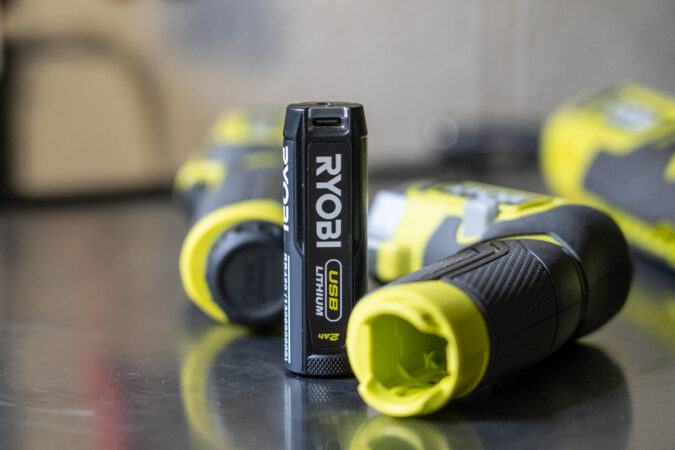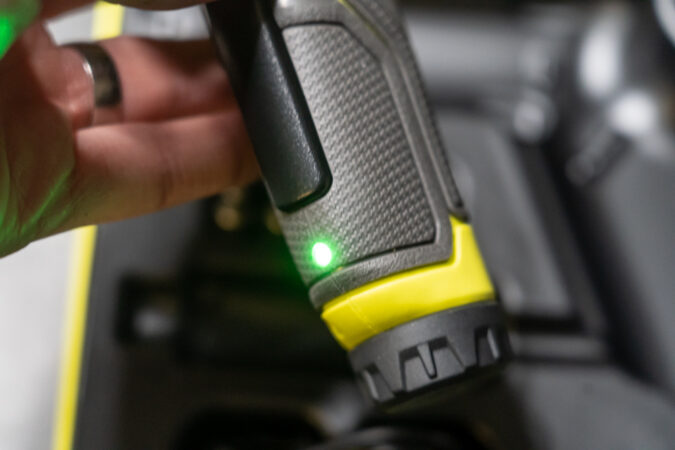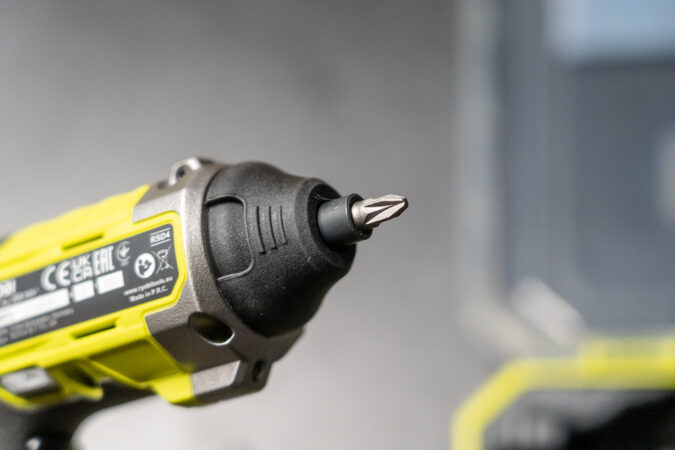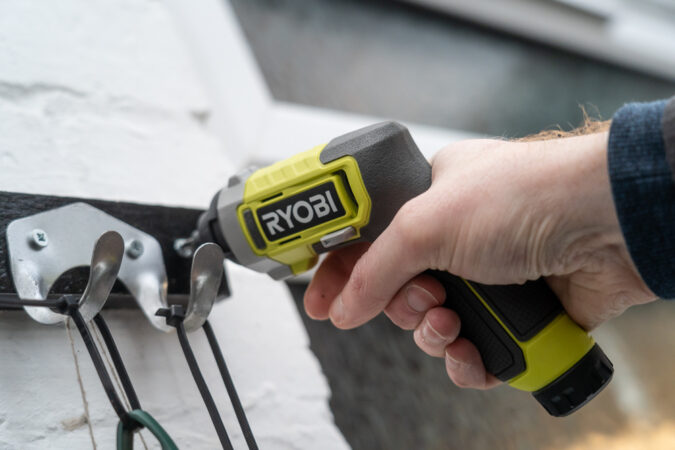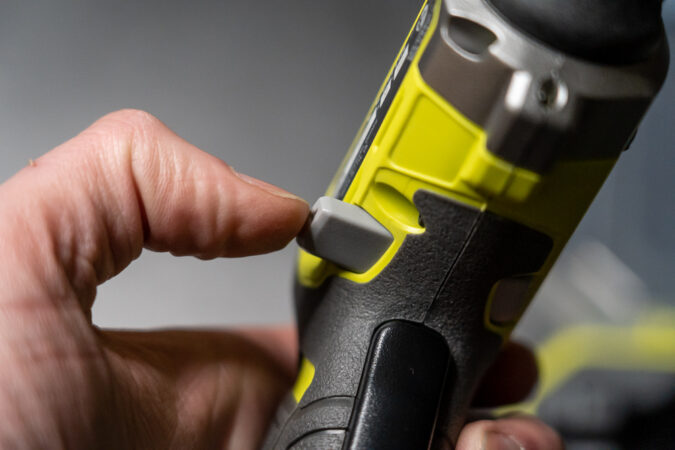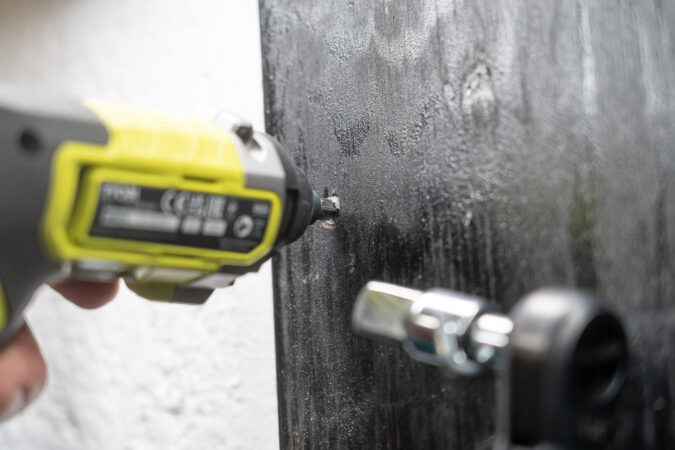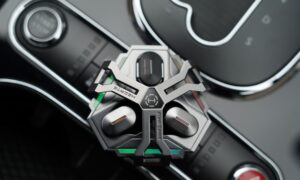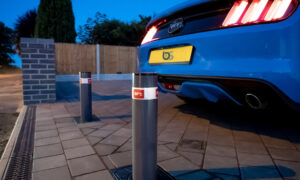Thus far, I’ve tested a handful of tools from Ryobi’s 4V Lithium collection, and among the many clever and neat tools they feature, the Ryobi RSD4-120T cordless screwdriver is likely to be their most popular model, given that it appeals to most people in what they’re probably going to need a tool around the garage and house for. I mean, right away, Ryobi did a really good job with the unboxing experience.
In the box (which is also a robust and solid carrying case), you’ll find a lot of different screwdriver bits that you might want. There are 10 in total, including Philips and flathead bits, as well as several specialty ones. When you do need to whip out Ryobi’s new RSD4-120T cordless screwdriver, slotting in those hex bits is also pretty effortless.
This makes quick changes really easy when you’re on the job. Similarly, at the tip of the screwdriver, you’ll find a neat little LED light to help illuminate the area that you’re working on. To use this Ryobi RSD4-120T cordless screwdriver, there’s a button that allows you to change directions; loosen or tighten. And, there’s a trigger handily in place, in addition to a soft, comfortable grip.
The one major point of consideration that you need to bear in mind though, is that the trigger only works as an on/off switch, rather than allowing a variable torque or speed that increases or decreases its speed based on how hard or soft you’re pulling the trigger. The one workaround that I’ve found is to simply tap the trigger on and off repeatedly to get a somewhat variation in speed and torque.
The Best Multi-Tool To Keep In Your Garage
With up to 5Nm of torque, thanks to a 200RPM motor, the Ryobi RSD4-120T cordless screwdriver is more than enough for most household screw-driving tasks. When it comes to working on cars, it’s adequate for most of the screws that you’ll find in a car. Usually, there are not too many screws on a car, typically, you’ll often find nuts and bolts, instead, but there are a couple here and there.
Most of the ones that I mostly interact with are those screws used for securing automotive electronics or electrical components. In addition, for those odd fasteners that can be prevalent on most cars, you could even replace the screwdriver bits with hex-mounted sockets, and for other tasks, you could replace them with hex drill bits, or even double it as a form of rotary tool.
Subsequently, there’s a lot of versatility and flexibility with what you can get out of it. The other appeal of the Ryobi RSD4-120T cordless screwdriver is the fact that it adopts Ryobi’s aforementioned 4V lithium 2Ah batteries. These are interchangeable with the other tools in Ryobi’s 4V Lithium line-up, and those batteries are easily rechargeable via USB, so you could just stick it into a power bank for a quick top-up.
On the bottom of the RSD4-120T cordless screwdriver, there’s a handy LED status indicator light that will light up in green when it’s charged up, or it’ll turn red if you need to swap out the battery or charge it. On top of that, I do appreciate just how small these 4V 2Ah batteries are, which I could readily toss in several of them into a pocket, pouch, or my toolbox, when I need to work on something.
Short And Stubby Screwdriver Bits
Another thing to take note of and be wary about, is that by default, in the box, every single tool in Ryobi’s 4V Lithium collection comes with one 2Ah battery. However, you could optionally get the 3Ah battery, for an extra charge, which is plug-and-play, so you don’t need an adapter or accessory to use it. Better yet, it has a larger battery capacity, so you can keep your tools running for longer.
Otherwise, those 2Ah and optional 3Ah batteries can even function as an emergency power bank for your phone or electronics. Aside from that, and going back to the RSD4-120T cordless screwdriver, the one and only big complaint and noteworthy consideration that I have is the stubby and short included screwdriver bits, which are, I think, a tad too short for my preference and use case.
Most of the time, with the sorts of work that I need to use a screwdriver with, I have to swap them out for screwdriver bits that are at least a couple more inches longer. This is usually so that I could at least fit the screwdriver ends into tighter working spaces and smaller areas, which the small and stubby bits can often struggle to reach.
Granted, for the most part, this isn’t a significant issue, and when paired with the modest torque output, it handily does 90% of all the screwdriver-related tasks that I’d ever need to do. It’s not enough to drive 9-inch screws into hard timber, for instance, but for putting on and taking off screws and assembling stuff, it gets the job done. For its £49.99 price tag, I think this would be a great addition to your toolbox, as it has with mine.

